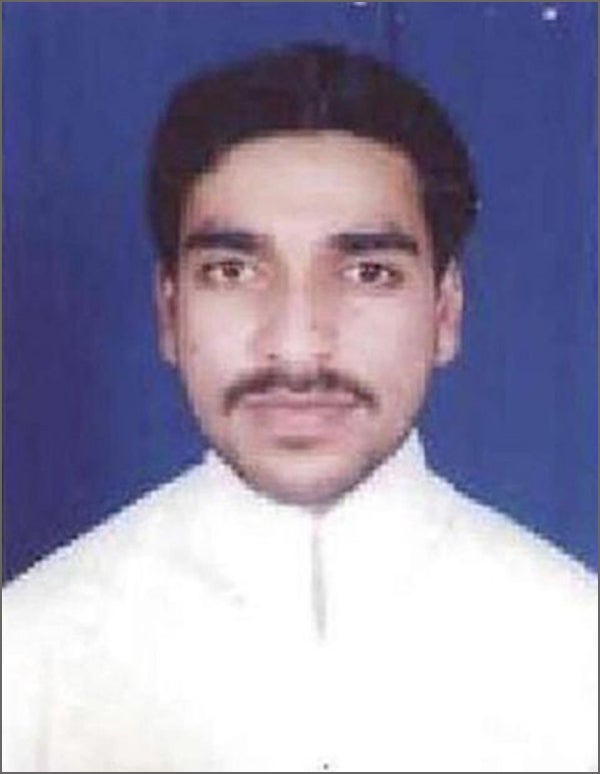Britain accused of war crimes over man held by US for eight years without trial

Your support helps us to tell the story
From reproductive rights to climate change to Big Tech, The Independent is on the ground when the story is developing. Whether it's investigating the financials of Elon Musk's pro-Trump PAC or producing our latest documentary, 'The A Word', which shines a light on the American women fighting for reproductive rights, we know how important it is to parse out the facts from the messaging.
At such a critical moment in US history, we need reporters on the ground. Your donation allows us to keep sending journalists to speak to both sides of the story.
The Independent is trusted by Americans across the entire political spectrum. And unlike many other quality news outlets, we choose not to lock Americans out of our reporting and analysis with paywalls. We believe quality journalism should be available to everyone, paid for by those who can afford it.
Your support makes all the difference.Human rights campaigners accused the British government of possible war crimes yesterday for failing to secure the release of a man held without trial for eight years by the Americans.
Yunus Rahmatullah, 30, was captured by UK special forces following the invasion of Iraq and handed over to the Americans, who eventually transferred him to Bagram air base. Despite US assertions that he is no longer considered a “security threat” he remains incarcerated in Afghanistan.
Yesterday the legal charity Reprieve failed to persuade the Supreme Court to come to Mr Rahmatullah's aid as it rejected the Pakistani's case by a majority of 5-2 that the British had not done enough to persuade the Americans to hand him over.
But the UK's highest court also rejected an appeal by the Foreign Secretary that the Court of Appeal had been wrong to issue a writ of habeas corpus – an ancient tenet of English law giving the legal right to be charged or released from arbitrary detention.
Yesterday Reprieve welcomed the Supreme Court's decision to dismiss the Government's appeal to overturn the writ of habeas corpus, adding that there should be a police investigation into whether “grave war crimes may have been committed”.
The charity said that the court had criticised the UK government for failing, on no less than three occasions, to request Mr Rahmatullah’s return, stating in the judgement: “The, presumably forcible, transfer of Mr Rahmatullah from Iraq to Afghanistan is, at least prima facie, a breach of article 49 [of the fourth Geneva Convention]. On that account alone, his continued detention post-transfer is unlawful.”
The charity's Legal Director Kat Craig added: “The UK government has nowhere left to turn. The highest court in the country has expressed serious concerns that grave war crimes may have been committed as a result of which a police investigation must be initiated without delay. The Court has also found that Yunus Rahmatullah’s detention is unlawful. Mr Rahmatullah, who has been imprisoned for over eight years despite being cleared for release by the US itself on the basis that he poses no threat, must now be released immediately.”
The law firm Leigh Day & Co, which represents Mr Rahmatullah, had argued that while he was in US custody he remained under UK control as part of a 2003 "memorandum of understanding" agreed between the two countries in accordance with the Geneva Convention that said any detainee would be returned without delay upon request.
Their challenge failed in the High Court in July last year but succeeded at the Court of Appeal in December, when three judges issued a writ of habeas corpus. But in February, appeal judges cancelled the release order after being told that US authorities were not going to "play ball" and that British ministers had "reached the end of the road”.
In a letter to the UK government, the Americans, said the US had already received a request from the Government of Pakistan for Mr Rahmatullah's repatriation, and that they considered it to be more appropriate to discuss the conditions of transfer directly with the Government of Pakistan.
During the appeal to the Supreme Court in July the government argued that the writ of habeas corpus should not have been issued while Mr Rahmatullah's cross appeal was that it should not have been discharged as the British ministers should have tried harder to persuade US authorities to hand him over. Both appeals failed.
Jamie Beagent, the lawyer at Leigh Day & Co representing Mr Rahmatullah, said: "We will be drawing the Supreme Court's findings to the attention of the Metropolitan Police who are currently investigating our client's case in relation to offences under the Geneva Conventions Act 1957.
"We call on the Government to engage with the US to bring to an end the ongoing breaches of the Geneva Convention in our client's case for which they are responsible.”
Subscribe to Independent Premium to bookmark this article
Want to bookmark your favourite articles and stories to read or reference later? Start your Independent Premium subscription today.
Join our commenting forum
Join thought-provoking conversations, follow other Independent readers and see their replies
Comments